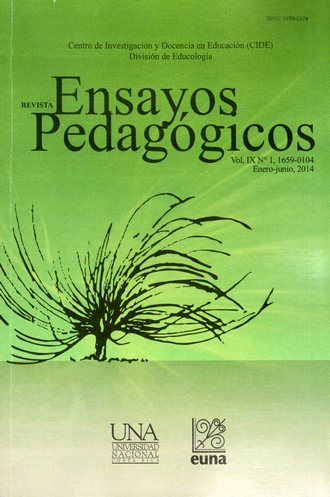Assessing Competencies from Authenticity: Implications for University Teaching
DOI:
https://doi.org/10.15359/rep.9-1.1Keywords:
assessment, measurement, authentic assessment, professional competencies, university teachingAbstract
In this essay, the author argues about the relevance of the authentic assessment paradigm as an ideal platform for the assessment of professional competence in university teaching. To this end, the author briefly discusses the concept of competence and its possible contributions to higher education to further argue about the functionality of the authenticity paradigm in the professional competence assessment.
References
Coll, C. (2007). Las competencias en la educación escolar: Algo más que una moda y mucho menos que un remedio. Aula de innovación educativa, 161. 34-39.
Coll, C. (2009). ¿Son los enfoques del aprendizaje basados en competencias, un instrumento útil para hacer frente a los desafíos asociados a la pérdida relativa del sentido de la educación y del aprendizaje escolar? Recuperado de
http://www.youtube.com/watch?v=12xaCoo_09I,
Fernández, A. (2009). La evaluación orientada al aprendizaje en un modelo de formación por competencias en la educación universitaria. Revista de Docencia Universitaria, 8 (1), 11-34.
Gibbs, G. (1992). Assessing More Students. Oxford: Oxford Centre for Staff Development.
Gielen, S., Dochy, F. y Dierick, S. (2003). The influence of assessment on learning. En M.
Monereo, C. (2009). La autenticidad de la evaluación en CASTELLÓ M. (Coord). La evaluación auténtica en enseñanza secundaria y universitaria, Barcelona, Edebé, Innova universitas.
Monereo, C. (2007). La evaluación auténtica de competencias: Posibles estrategias. Recuperado de http://www.sinte.es/carlesmonereo/?page_id=101
Prodomou, L. (1995). The backwash effect: from testing to teaching, ELT Journal, 49(1), 13-25.
Savery J.R. y Duffy, T.M. (1995). Problem-based learning: An instructional model and its constructivist framework. In B. Wilson (Ed.), Constructivist learning environments: Case studies in instructional design (pp. 135-148). Englewood Cliffs, NJ: Educational Technology Publications.
Sweller, J., Van Merrienboer, J. J. G. y PAAS, F. G. W. C. (1998). Cognitive architecture and instructional design. Educational Psychology Review, 10, 251−296.
Wiggins, G. (1989). A True Test: Toward More Authentic and Equitable Assessment. The Phi Delta Kappan, 70 (9), 703-713.
Woolflok, A. (1999). Psicología Educativa. México: Prentice Hall.
Zabala, A. y Arnau, L. (2007). 11 ideas clave: Cómo aprender y enseñar competencias. Barcelona, Graó.
Downloads
Published
How to Cite
Issue
Section
License
Ensayos Pedagógicos is subscribed to the Attribution-NonCommertial-NoDerivatives 4.0 International Creative Commons Licence, which allows both authors and readers to freely download, store, copy, and distribute the final approved publisehd version of the manuscript (post-print) as long as this is done without commercial purposes, no derivative works are generated, and the source and author are mentioned. As well, Ensayos Pedagógicos declares that authors will remain the rightful owners of the copyrights of their work in perpetuity.







